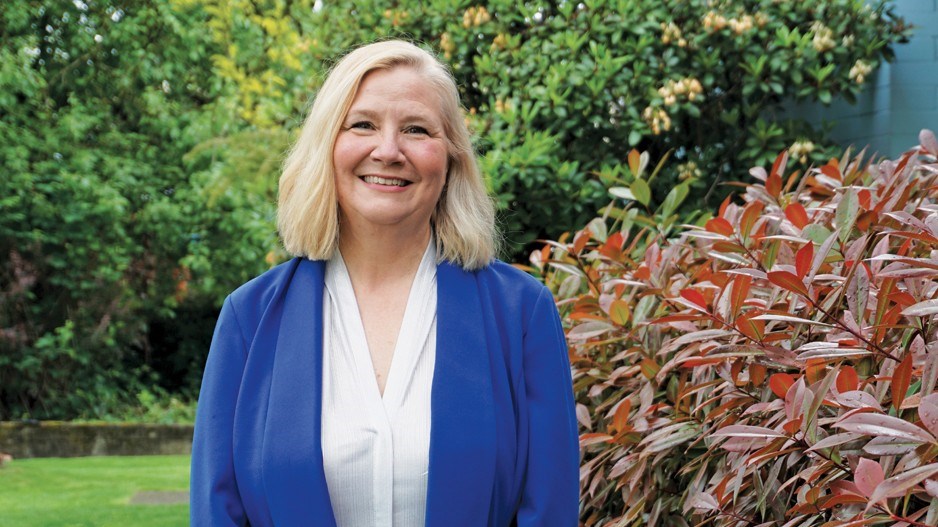Donna Grant brings a solid foundation of experience to her new role of leading one of the province’s top construction-industry groups.
She was recently named president of the Vancouver Regional Construction Association (VRCA). A longtime member of the Lower Mainland construction industry, she succeeds interim president Jason Glue and follows Fiona Famulak, who was VRCA president from September 2013 until January 2021.
“I couldn’t be more excited,” said Grant. “As an essential service that has demonstrated its resilience during the pandemic, the construction industry is vital to the Lower Mainland.”
Grant is well known in local construction circles, thanks to such activities as mental health advocacy, membership in Canadian Construction Women and participation in many industry panels.
It’s not a stretch to say that Grant, who was born in Hines Creek, a village in northern Alberta, has the industry in her blood.
“Dad owned a sawmill, a gas station and a road construction company,” she said.
When Grant was a little older, she and her family moved to Kelowna. After graduating from high school, she enrolled at the British Columbia Institute of Technology, where she studied marketing management.
After graduating, Grant worked in a series of occupations – among them chef and restaurant owner, liquor agent, post-secondary teacher, writer and editor and fax machine salesperson.
A natural go-getter, Grant got a marketing job with Aura Office Environments, a Vancouver commercial interior design firm.
“I helped drum up enough business to bring the company up to 20 staff,” she said. “I worked there for four years and then left when nothing more was needed from me.”
Following that was a position at Emterra Environmental, where she managed marketing, proposals and tenders for the recycling company. Next stop was Scott Construction Group, where she was proposal and marketing manager.
While at Scott she also became director of community of Canadian Construction Women, an organization that was founded to attract more women to the construction industry.
“Thanks to working at Scott and taking part in extracurricular activities like Canadian Construction Women, I developed a broad understanding of the Lower Mainland construction industry,” she said.
Grant said she applied for the VRCA job at the suggestion of some members of the association.
“I was a little reluctant to make an application, but I decided to go ahead anyway. I asked myself, ‘What does the association need? And how can I be effective as president?’”
Grant added that during the interview process, the hiring committee got to know her as she really is.
“I was 100% myself,” she said. “I didn’t pretend to know everything and felt comfortable not having all the answers.”
Grant said it’s better to have a president who doesn’t claim to know it all but who knows the people who do have the answers.
“As VRCA president I won’t rely on just my own opinions, and I’m willing to listen and learn,” she said.
Construction faces a number of serious challenges that need to be addressed right away, she said.
“COVID-19 is still with us, and many young workers are hesitating to get vaccinated. To keep everyone healthy and the industry open it’s important to get vaccinated as soon as possible.”
In addition to putting construction workers at risk of physical illness, the pandemic has had a major impact on mental health.
“Mental wellness is an important concern at any time, but the stresses and strains connected with COVID-19 have been making it worse,” Grant said. “And many construction workers are reluctant to ask for help if they are feeling stressed or depressed.”
To combat the continuing labour shortage in construction, the industry needs to change how it is perceived outside the industry and make itself more attractive to a broad cross-section of British Columbians, she said.
“There are still too few women in construction. The situation is certainly improving, but construction needs to become more attractive to females.” •




